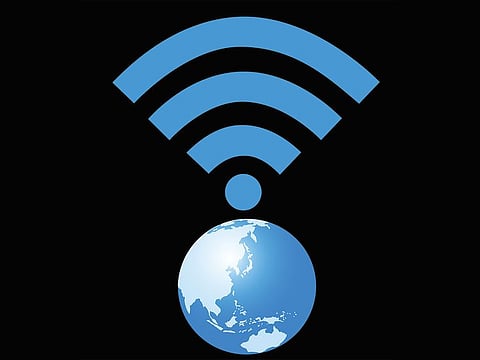Will 3D internet spell an end to smartphones as we know it?
Biometric digital identities, holograms and Metaverse will recast web experiences

Smartphones and screens of all kinds are taking up more and more space in our lives. However, the end of their domination is already in sight, with the deployment of the 3D internet.
The race for investments to replace smartphones has started. Amazon is investing more than $10 billion in its connected speaker, with the clear objective of prioritizing voice access to its ecosystem. Meta has plans for more than $10 billion a year in its Metaverse, with the clear goal of pushing visual access to its ecosystem.
Thanks to its payment system, which has become the second largest in the world after Visa, and the success of its watches, Apple is already investing in various biometric applications, which are the cornerstone of tomorrow’s multi-channel digital identity. No doubt Twitter will soon come to equip Starlink or Tesla as a privileged platform to access the internet.
Our body - through touch, voice, and vision, will be the main - and perhaps only, access ports to the immersive internet of tomorrow. Any object that does not naturally merge with our senses will eventually become defunct.
With the advent of our digital twins, we will see the progressive replacement of smartphones with glasses or watches. 2D screens or computers will be replaced, ideally, by holograms simulating our workstations, to which we will have access through glasses or virtual reality headsets. Smartphones are bulky, rigid, fragile, polluting, sometimes unsightly, and have an unpredictable energy autonomy.
Letting go of smartphones
How can we collectively accept our dependence on smartphones? Future generations will look back with incredulity at our obsession with these objects that we consider luxury items. Smartphones will be seen as the landlines or VHS tapes of our generation.
Some use cases will totally dispense with physical objects such as Amazon Go - stores without any staff or cash registers. However, a new generation of objects will fulfill the hybrid human-machine function through the hyphen of biometrics, i.e. the use of a second skin.
This may go so far as subcutaneous implants. Glasses will play a central role, even before virtual reality headsets.
This is not a dystopia or science fiction. The defence space is already teeming with these applications, with the augmented soldier. Other professions, such as the medical profession with virtual consultations, are following these developments closely.
The switch to consumer usage is only a matter of time, with two probable drivers: video game consoles and the workstation. As for any technological innovation with high potential, everything depends on the viral rate of adoption, the relevance of the uses and a reasonable economic equation.
True gatekeepers of the internet
Aside from Apple and Google, and to a lesser extent Samsung, all leading tech players hold an interest in developing these alternatives. They can better position themselves as true gatekeepers with the control of our digital identities and the capture of payment transactions at the center of the game.
Nevertheless, it is through this lens that we understand major platforms’ determination to create verified and paying accounts and to put an end to anonymity, which has become illegal in this biometrically-controlled internet.
Will the billions of dollar annual investments be enough to open these new access channels and encourage today’s dominant players to react? For the moment, they control both the platforms and the industrial chain, and have an asymmetric position.
They don’t seem to be accelerating the movement to preserve their existing investments. In fact, the whole tech industry is waiting for Apple’s signal, which has been postponed. They are the masters of time right now - but for how much longer?




